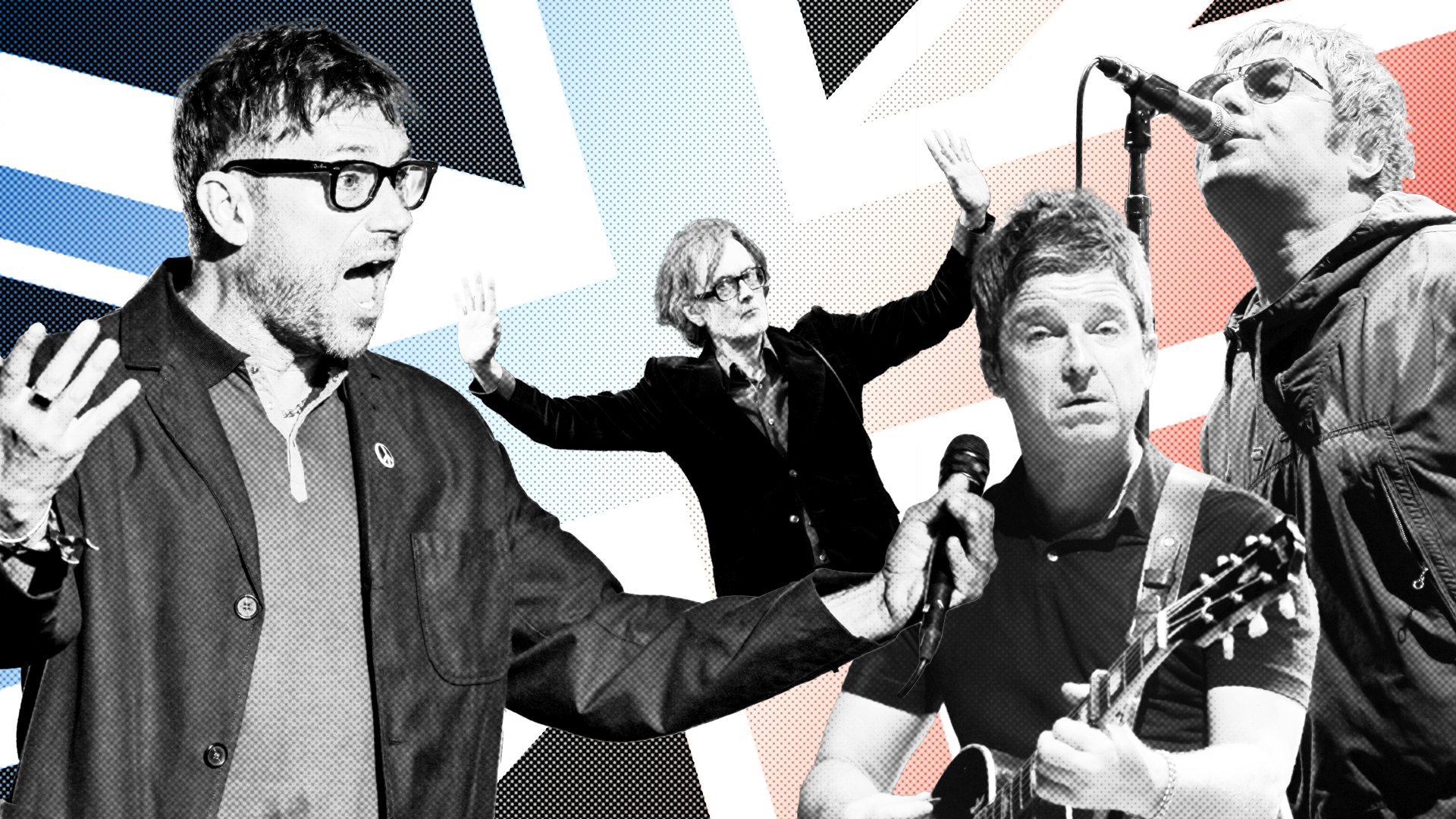There was a joyous moment at one of Blur’s two Wembley Stadium shows earlier this month, when
frontman Damon Albarn and guitarist Graham Coxon shared a cheeky kiss on the lips between songs. A slightly over-sentimental show of unity, perhaps. But as plain and earnest proof as you could hope to witness that the heart of one of Britain’s greatest ever bands has healed after so much bad blood, and that Blur’s happy resumption of business can be celebrated without cynicism.
The second summer of Britpop, as some have dubbed it – with three of the era’s four biggest artists back on the road at the same time – is proving nothing if not emotional. Blur have performed their biggest-ever gigs, to a rapturous response. Pulp have rocketed into arenas and festival headline slots again for the first time since their first reunion over a decade ago, frontman Jarvis Cocker warmly dedicating the song Something Changed each night to the memory of bassist Steve Mackey, who died in March. Suede have been touring the trashy-euphoric hits, while the Gallaghers have been (separately) performing rousing Oasis classics among new solo material. Everywhere you look the clock is being reset to the end of a century in a tearful rush of Proustian memory.
Get the latest news and insight into how the Big Issue magazine is made by signing up for the Inside Big Issue newsletter
“Do you remember the first time?” pondered Cocker in one of Pulp’s best-loved songs from their 1994 breakthrough album His ’n’ Hers. Fact is, if you can remember anything of the heady days of Britpop then you probably didn’t do it right. Blur and Oasis scored top five hit singles in 1994, and then in April 1995 Oasis had their first number one with Some Might Say. In June that year Pulp’s Common People reached number two. Then came the mainstream mass cultural event that was Blur vs Oasis a few weeks later. Swagger and indulgence were the order of the day.
It’s generally accepted that Britpop was a sleazy media and commercial construct rather than a genuine unified musical movement. But as time steadily passes, it’s funny how optimism has a habit of usurping scepticism, and how good memories eclipse the bad. The entire reunion business is practically built on it.
Britpop collapsed under the weight of its excess and a lot of harsh words were spoken in its aftermath. It’s interesting to reflect today on the confident proclamations of younger men, and consider how indeed something changed in many of them. In 2008, Albarn – busy with Gorillaz and various side projects, and in no mood to give Coxon a kiss having scarcely spoken to him since the guitarist quit Blur in a cloud of alcoholism and acrimony in 2002 – declared in an interview: “Blur is over.” To which Coxon retorted: “Nonsense… it isn’t for him to decide.” Within a year they were triumphantly headlining Glastonbury. Blur’s second post-reunion album The Ballad of Darren was released last week, and it might be their best of the new century so far.









